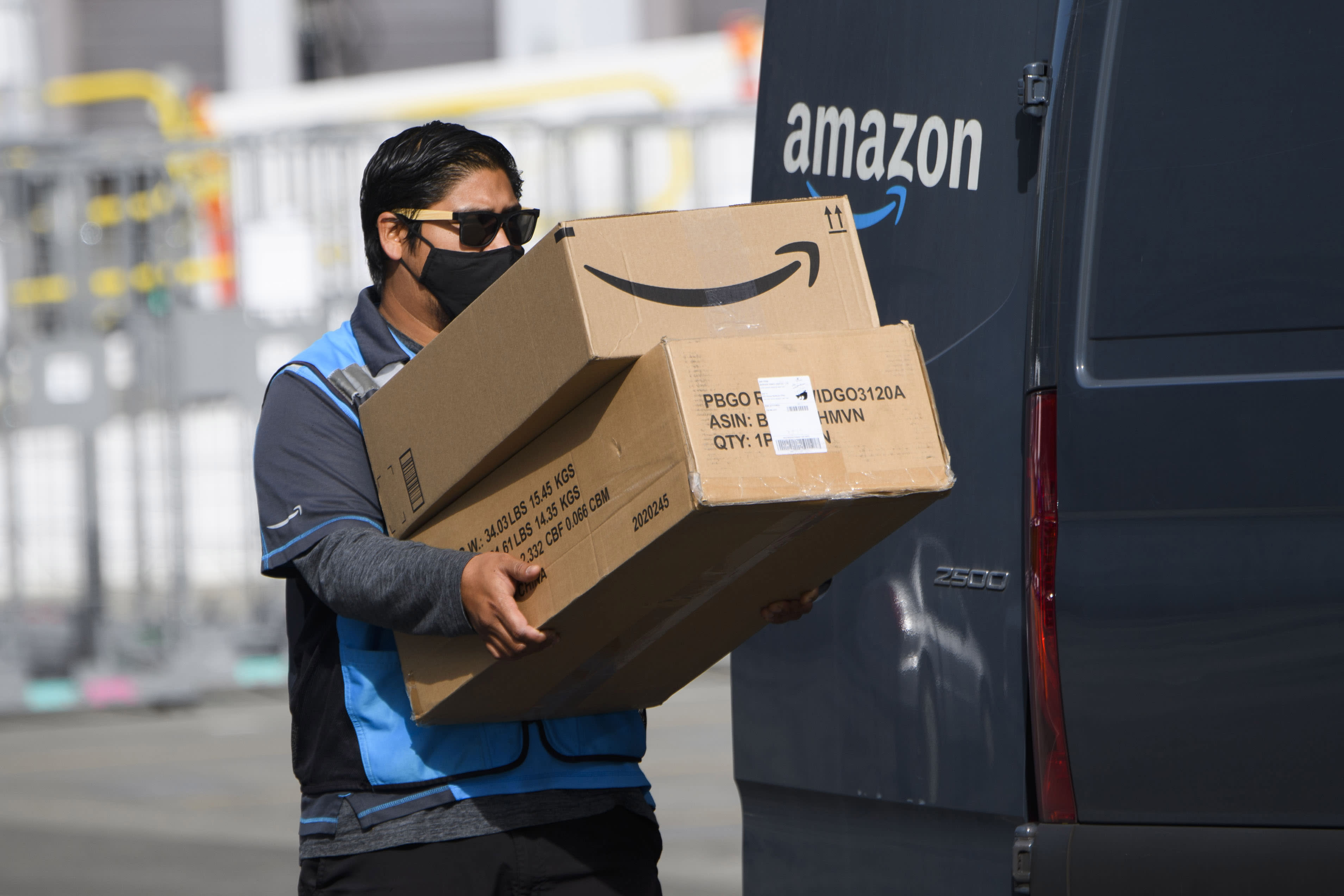An Amazon.com delivery driver carries boxes into a van outside of a distribution facility on February 2, 2021 in Hawthorne, California.
Patrick T. Fallon | AFP | Getty Images
Amazon is appealing to social media companies to help curb the spread of fake reviews on its site.
In a blog post Wednesday, Amazon said bad actors are increasingly turning to outside social media platforms to buy and sell fake product reviews, which has made it more challenging for the company to put an end to the issue.
“Some use social media services on their own; in other cases, they hire a third-party service provider to perpetrate this activity on their behalf,” Amazon wrote in the blog post. “However, bad actors regularly try to take this transaction outside Amazon to obscure our ability to detect their activity and the relationship between the multiple accounts committing or benefiting from this abuse.”
Amazon blamed social media companies for being too slow to act when it flags fake review activity on their platforms, while noting there has been some improvement in response times.
In the first three months of last year, Amazon said, it flagged more than 300 groups to social media companies, who “took a median time of 45 days” to shut them down. By contrast, over the same time period this year, Amazon reported over 1,000 groups to social media services, which took a median time of five days to remove the groups.
“While we appreciate that some social media companies have become much faster at responding, to address this problem at scale, it is imperative for social media companies to invest adequately in proactive controls to detect and enforce fake reviews ahead of our reporting the issue to them,” Amazon said.
While Amazon didn’t call out any social media platforms by name, it’s likely that the company was referring to the presence of fake review groups on Facebook. A 2018 investigation by U.K. consumer watchdog group Which found several “reviews for rewards” groups on Facebook, potentially comprising tens of thousands of members, that oversee fake review schemes where users are asked to purchase a product and leave a glowing review in order to receive a refund via PayPal.
Regulators have begun paying attention to the fake review schemes on Facebook. Last year, the U.K.’s Competition and Markets Authority said Facebook pledged to better identify, investigate and remove fake review groups. A follow-up investigation by the CMA resulted in Facebook removing another 16,000 groups that were “dealing in fake and misleading reviews,” according to the group.
Representatives from Facebook didn’t immediately respond to a request for comment. The company has previously said it prohibits fake reviews and has invested in automated and human review teams to detect abuse.
Fake reviews have plagued Amazon for years. The problem has become more severe as Amazon’s online marketplace has grown to amass millions of third-party merchants. Fake reviews not only threaten to damage Amazon’s relationship with shoppers, but they can put shoppers at risk of buying faulty or counterfeit goods.
Last year, Amazon removed 20,000 reviews after a Financial Times investigation found that top Amazon reviewers in the U.K. were profiting from posting fraudulent reviews.
Amazon has said it invests heavily in machine learning tools and human moderators to root out fake reviews and other fraud. The company said last year it stopped more than 200 million suspected fake reviews before they were viewed by shoppers.

